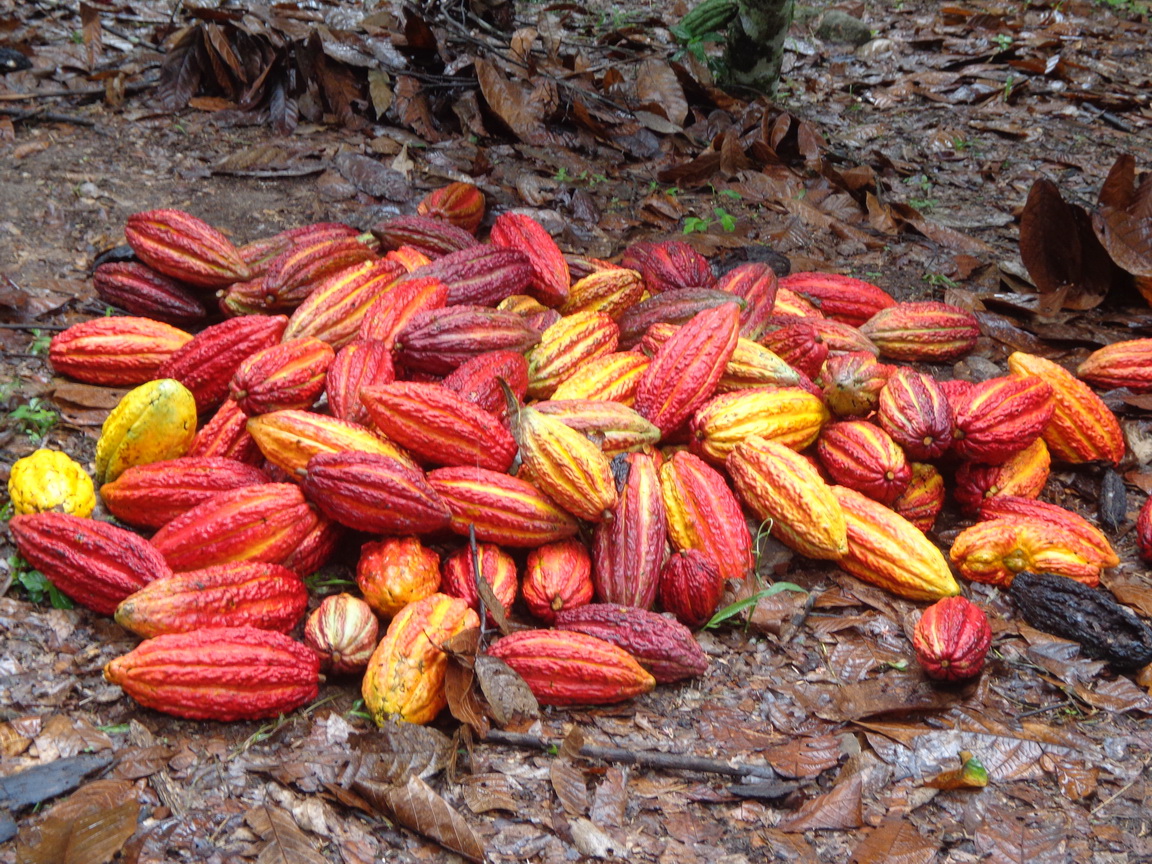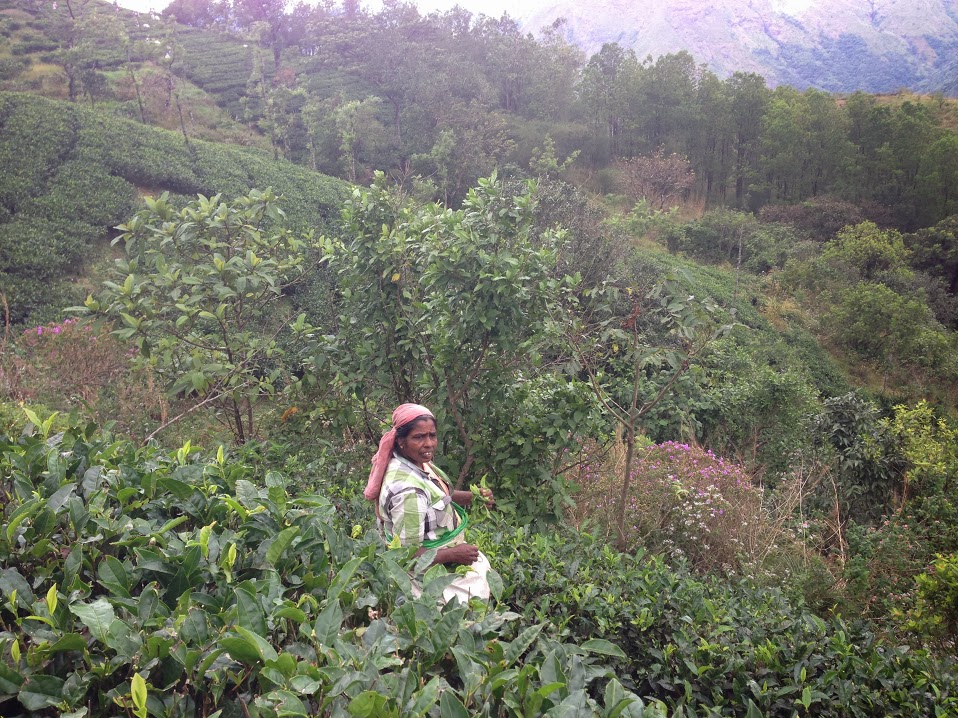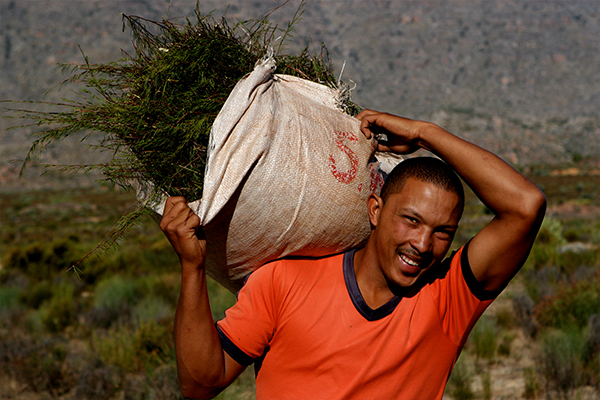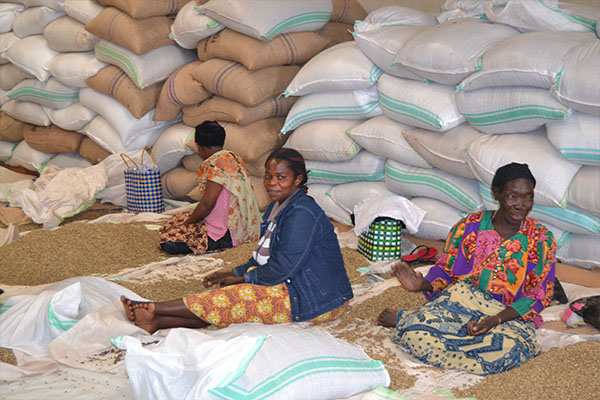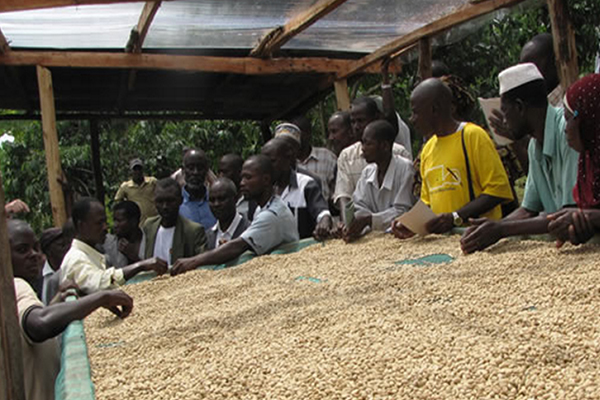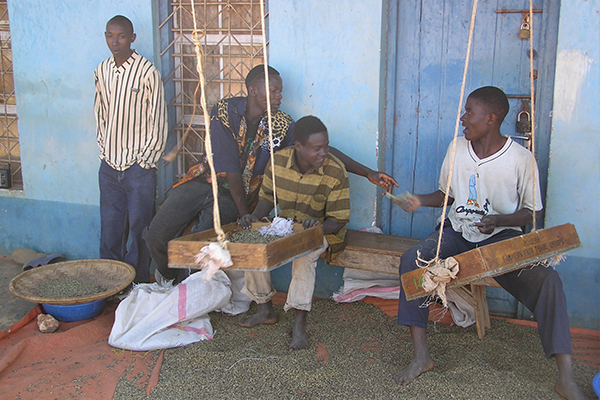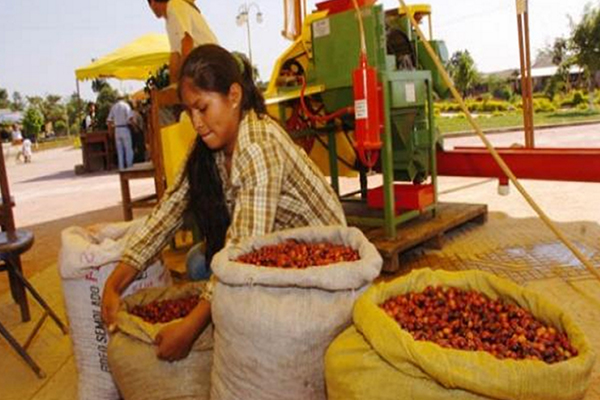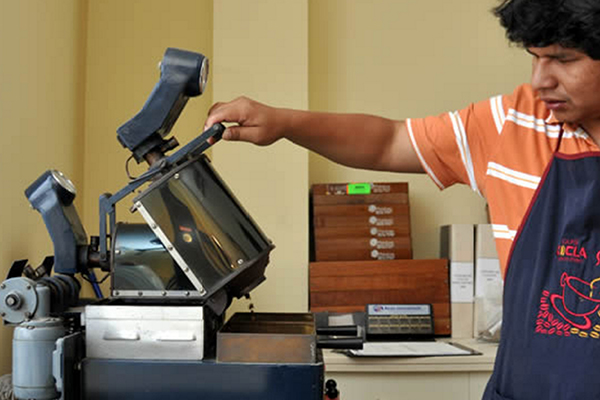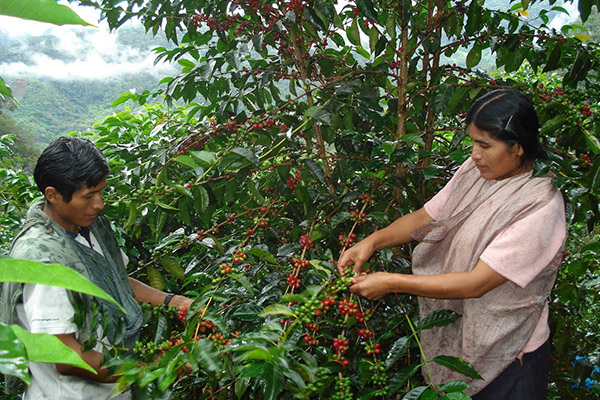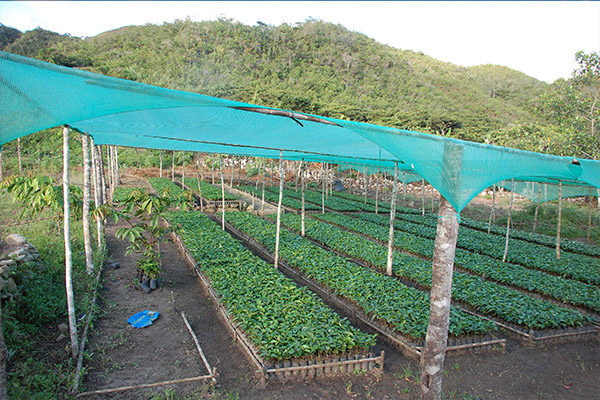Organization of cacao of special qualities producers, located in the Central Huallaga Valley, San Martín region, Peru. Distributed in 4 Provinces: Mariscal Cáceres, Huallaga, Bellavista and Picota with more than 2,000 associates, whose main activity is the promotion of the cultivation of cocoa, from its sowing, maintenance, harvest and export of organic cocoa beans.
Visit website ACOPAGAROArchives: Cooperativas
The tea comes from a region of India called Kerala. It is a cooperative that brings together more than 200 families. They carry out the entire process, from cultivation to packaging.
The Small Farmer Tea Project cooperative is the first that, apart from being fair trade and organic, only works with small producers and does not use pesticides or genetically modified organisms in its productions.
This cooperative was founded in 2009 and is made up of about 100 people, who have been working in the production of rooibos since 1998. A turning point for the cooperative came when Fair Trade certification was achieved in early 2010. Its members and partners work as a team and support each other in the development of the cooperative, in their skills and in improvements in production.
Fair Trade guarantees a minimum price when buying rooibos, which is much higher than the conventional market price. This supposes a drastic improvement in the income of small farmers and farmers, and represents a great opportunity for producer organizations to benefit from their work and to invest in their own development. After the hard fight to free themselves from the colonialist plantation model, from apartheid and to put an end to structured racism, inequality and the exploitation of farmers, being able to benefit from their work has meant a great change for them.
Visit website WupperthalBanyankole Kweterana Co-operative Union, BKCU was founded by 350 coffee producing cooperatives. Banyankole Kweterana means “The people of the Ankole region working together”.
Its base is the coffee producers of the cooperatives of the 10 districts of the Ankole region, in Uganda. Currently, the operational activities of BKCU are the local sales and export of Robusta and Arabica coffee, especially for Fairtrade markets.
They work with the objective of increasing purchases and exports of coffee within Fair Trade channels, in order to improve the living conditions of grassroots cooperatives. They provide the necessary infrastructure for the reactivation of cooperatives, they propose training to improve their capacities and the environmental and social awareness of male and female farmers, primary societies, the Union Administration and the Board of Directors.
Visit website BKCUThe Ugandan Coffee Growers Cooperative Union ACPCU brings together more than 17 coffee growing cooperatives, with more than 6,000 multi-ethnic people from different communities, stretching across the mountains of southwestern Uganda, from the fertile slopes of the Bushenyi to the Bunyaruguru heights. Although they speak different languages, they share a common voice: working together as farmers, with a vision of the future in the coffee trade and to improve their living conditions.
ACPCU LTD is directly involved in improving the quality of life of its members, who are the producers. Through the Fair Trade premium fund they have been able to build ponds and bridges and create schools for students in Nyakahita and Katenga, in the Mitooma district.
ACPCU LTD offers its members technical training for the production and marketing of coffee, timely supervision (according to the needs of the members), training of farmers in the best agricultural practices and record keeping.
Visit website ACPCUIn Tanzania, the production, processing and marketing of coffee is managed by a system of “Primary Societies” (or Village Cooperatives), which are joined by small farmers who, in turn, are associated in Unions of Cooperatives (regional), present in each of the 5 coffee producing regions.
Two of these regional cooperatives, KCU and KNCU, market more than half of all coffee in the country. KCU has 96 Primary Societies to which some 60,000 members adhere. The management of KCU is in the hands of a Board of Directors made up of 12 people, and the different areas of work are covered by some 400 workers.
KCU was born in 1950 with 48 primary (village-based) societies. In 1976 it was dissolved by the government (along with other cooperatives) and replaced by a state agency that was in charge of its sale and transformation. The cooperative unions were reinstated in 1984, but their assets were never returned, leaving them in a state of extreme poverty. In 1991 the government gave cooperatives complete autonomy, as well as freedom of association. KCU made its first Fair Trade export soon after, while Alternativa3 made its first import to our country in 1999.
The KCU is a second or secondary level cooperative. Its main activity is the commercialization of coffee and other agricultural products from 178 primary or base cooperatives. They are located in villages in the Kagera region, specifically in the districts of Bukoba and Muleba, representing some 100,000 workers who, together with their families, make up some 300,000 people. KCU also provides training and technical and financial support to small farmers. Farmers become members of grassroots cooperatives by purchasing 5 shares in the societies, for about 1,500 Tanzanian shillings.
Visit website KCUCoopvama, Valle Marañón cooperative is a competitive organization in the organic and specialty coffee market. Its strength is based on constant improvement, based on the training of its members (with the aim of satisfying the requests and demands of its customers), contributing to the human development of coffee families with economic, social and environmental responsibility, having as principles: gender equity, continuous improvement and diversification of business lines.
COOPVAMA’s raison d’être is to provide technical assistance, storage and export services, promoting productivity, competitiveness and self-employment. They also promote the culture of peace and harmony with the environment. All this contributes to human development in an equitable manner and to the continuous improvement of the quality of life of the members and, therefore, the satisfaction of clients and clients, also taking advantage of the opportunities of the environment in the generation of new businesses.
Visit website CoopvamaCOCLA is a second-tier Peruvian cooperative that is made up of 22 primary cooperatives with a social and service vocation.
COCLA’s participatory and gender approach is oriented towards the implementation of activities that generate an improvement in the economy of its members, paying special attention to the responsible management of the environment and implementing productive diversification processes.
COCLA’s mission is to contribute to the socioeconomic development of its member Cooperatives and their members, providing competitive and quality services (related to the process and marketing of coffee and other products) and promoting the comprehensive development and business capacity of their organizations. .
COCLA’s vision is to become the main high-quality brand of coffee in Peru and an authority in its preparation, as well as other products that make up the agricultural chain of its associates. COCLA’s strategy, throughout its years in the market, has always been differentiation in quality, environmental expectations and sustainability expectations. To do this, COCLA has Fair Trade, Organic, Rainforest Alliance and Rei Alliance certifications.
Visit website CoclaThe Central de Cooperativas Agrarias Cafetaleras de los Valles de Sandia: CECOVASA, or La Central, was founded in 1970 by five cooperatives that came together to export directly, to obtain better prices and to share expenses; now it has 8 cooperatives that bring together 4,581 producers. The Central exports more than 75% of the coffee production of the Tambopata and Inambari valleys, on the eastern slope of the Andes in southern Peru. The production of both valleys represents 2% of the national total.
The members of Cecovasa are Quechuas and Aymaras, they come from the highlands of Lake Titicaca. This region of infertile soils is periodically affected by the El Niño phenomenon, which was and is the cause of migrations (such as the one that occurred in the 1930s in the Bolivian Yungas region, where they learned to cultivate coffee that, twenty years later, later, gave rise to the Central). Thus, the coffee, which was born in Ethiopia, and was spread from France and Holland, came to Cecovasa from Bolivia).
The Aymara civilization colonized the Tambopata valley for the most part; the Quechua civilization, meanwhile, the Inambari. The producers cultivate an average of two hectares of coffee plantations. Cecovasa’s production area ranges from 800 to 2,000 meters above sea level and a third of the coffee plantations are in the buffer zone of the Bahuaja Sonene National Park. The harvest is concentrated between March and July, extending in the highest parts until November.
CECOVASA’s purpose is to promote association, leadership and business excellence of its cooperatives and associated producers. To this end, it promotes business training and provides training services, technical assistance, credit, acquisition of supplies, brand development, certification, information, collection, processing and marketing of specialty coffees. With all this, it seeks to contribute to the increase in income and the improvement of the conditions and quality of life of families.”
VISION
“CECOVASA is an organization of coffee growers and producers from the Sandia Valley supported by the values and principles of cooperativism, committed to the eradication of extreme poverty, the preservation of Andean culture and environmental sustainability, which supports its consolidation and business growth in the efficiency of its production and commercial processes and in the originality and quality of its products”.
Visit website Cecovasa
Association of Agricultural Producers Agrocafé Kivinaki (Agrocafé) is an association of producers of coffee and oranges, located in the Junín region of Peru. It is dedicated to the specialty, Fair Trade and organic coffee market.
Agrocafé’s mission is to produce high quality certified coffee for international market niches. It offers its members technical and financial assistance to improve their production, assistance in the adoption of good practices and stimulates economic and social progress.
Agrocafé is a small organization with around 150 members. The average size of coffee plantations is four hectares. Its business model is based on maintaining a solid relationship with its partners, and on seeking financial, social and environmental sustainability in a region afflicted by high levels of poverty.
Visit website Agrocafé